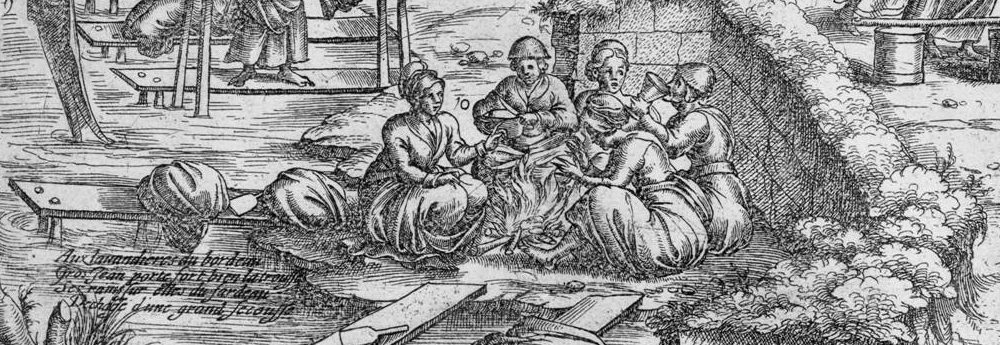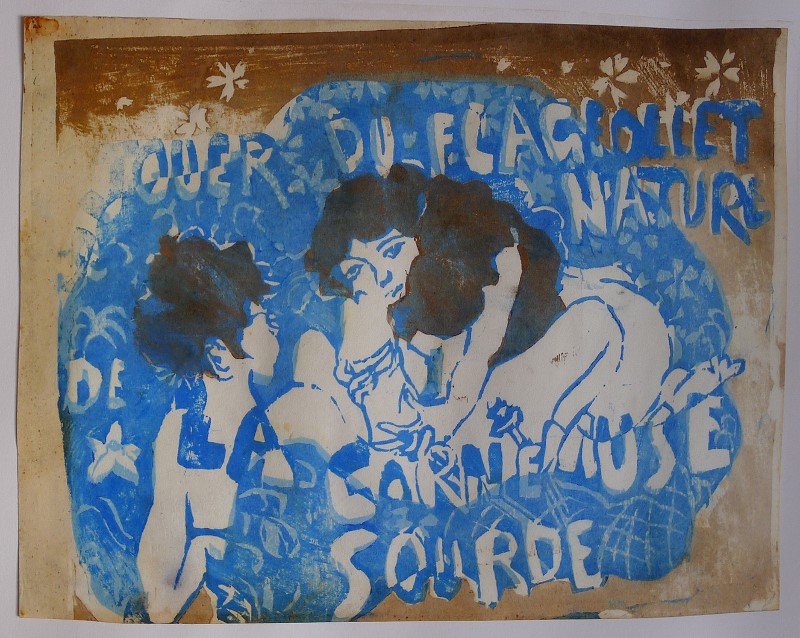Implausibly devoted readers of this blog may remember that the early seventeenth-century French comedian known as Bruscambille has a speech on castrati (controversial figures, believed to be ideal lovers, since some allegedly could maintain an erection but obviously without any risk of pregnancy, hence they became the target an entirely serious injunction issued by the high court of Paris, which was concerned that eunuchs might corrupt women…) in which he makes the following observation about Spring:
In this pleasing season, the pilgrim starts planting his staff while the shepherd starts playing on nature’s flute and the mute bagpipe in the shade of the shepherdess’s mossy mound. In short, at this time, everything lives, everything dances, and breathes only orbicular conjunction.
[En ceste agreeable saison, le Pelerin commence à planter son bourdon, le berger à jouer du flageollet de nature, et de la cornemuse sourde à l’ombre du tertre moussu de la bergere. Bref, en ce temps tout vit, tout dance, et ne respire que la conjunction orbiculaire.]
He goes on to comment how sad it is that castrati cannot ‘chime and ring their bells’ to celebrate the arrival of sweet Spring.
Dominic Hills already turned the ludicrously Latinate phrase ‘conjunction orbiculaire [orbicular conjunction]’ into one of his woodcuts and now he returns to this same speech for the source of his latest version of Japanese erotic prints (shunga), ‘jouer du flageollet de nature, et de la cornemuse sourde’ [to play on nature’s flute and on the mute bagpipe]
Bruscambille’s image reminds me of Peter Cook’s famous satire of the judge’s summing-up in the Jeremy Thorpe trial of 1979 in which he describes a thinly-veiled version of the male model Thorpe was charged with conspiring to have killed as ‘a scrounger, a parasite, a pervert, a worm, a self-confessed player of the pink oboe‘. Cook wrote the speech the night of its performance, surrounded by other great comedians. As Harry Thompson notes in his biography of Cook, Michael Palin recalls that two minutes before going on stage, he was seeking out a euphemism for homosexual and Billy Connolly ‘with the air of a scholar recalling some medieval Latin’ remembered hearing someone described as a ‘player of the pink oboe’. Two minutes later, the brilliant Cook was on stage, throwing in ‘self-confessed’ for good measure.
Nature’s flute and the mute bagpipe do not have the political force of Cook’s player of the pink oboe, even if Bruscambille’s speech does satirize what now appear to be unlikely anxieties about eunuchs. Nevertheless, it is still pleasing to think of a kind of comic continuum between performers and audiences over the centuries, delighting in this kind of humour and indeed preserving and transmitting it (viz. Michael Palin saying that Billy Connolly was like a ‘scholar recalling some medieval Latin’), which this blog has also sought to do.

